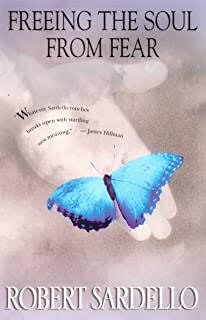The god Pan in Greek mythology is a curious deity. As a loner in the mountains of Greece, he spent his time seducing the nymphs of the forest and generally alarming and terrifying folks living on farms, villages and cities. Because he was not often seen, his howlings and growlings disturbed all those who heard him; he was the great disruptor of ordinary life from family to nations. Whenever we feel collectively an overwhelming sense of fear, of threat, of vulnerability, whether it be to our values, our beliefs or our way of life, our first instinct may well be to panic. Then our shields go up.
Fear, a cousin, or maybe brother to panic, can also be a corrosive presence to our thinking and responding to what threatens. I have been thinking of how much the stories we are hearing today are mainly fear-based and stoked often by mis, dis, and wrong information. In-formation may easily coalesce into fear-formation, with responses to it being seemingly senseless acts of violence. Both panic and fear are forms of terrorism in themselves and cultivate responses often devoid of reason or even calm common sense.
I returned to a book that a former professor of mine wrote years ago: Robert Sardello’s Freeing the Soul From Fear (1999). It could have been published yesterday, for the conditions that incite fear are universal and timeless. We often don’t think about being afraid as an opportunity for self-reflection personal growth, but Robert does. Let me share a few of his insights about Fear, an emotion that vibrates around us intensely today.
When Fear becomes one of the major stories in our lives, we may begin to live a decentered life; we are pulled out of ourselves in fear.
Retreating to prejudices is one common way that individuals deal with Fear. The word “prejudice” means to pre-judge, to judge without facts or correct information. It is a comforting place to retreat to in the face of being afraid.
Fear exposes each of us to judgements that can, in times of calm, be seen as irrational and disconnected from the reality we feared, and can actually feed the furnace of Fear burning within us.
Fear disturbs the flexible boundary between me and the world.
From Robert’s observation above, I would add that Fear makes us rigid, self-enclosed, an insulated system that feeds on its own toxic juices.
If we approach Fear by hoping to stop it through external means alone, we are probably using the wrong tools. Some deeper response must come from within us.
As Robert understands it, the soul needs time to take things in; it cannot be hurried. When bombarded with one sequence of events after another, with little depth or understanding accompanying it, then Fear enters us and becomes its own tyrant, stoking itself into greater control over our thinking.
Fear creates a disposition towards obsessions, compulsions and other forms of non-reflective thoughts and actions. They in turn dull consciousness and the ability to reflect.
What might be an antidote to a fear-based individual or culture? Robert suggests several. He believes that the human imagination itself is a moral force, one which can free us from a Fear-based pattern of reacting and begin to respond with compassion and love, first for oneself. Developing an inner silence while observing the outer world can also cultivate a calm understanding attitude that takes the wind out of Fear’s sails.
Cultivating as well a spirit of patience, waiting, and receptivity can begin to counteract the urges of our instincts and passions. Thought is an antidote to the impulses of the instincts and compassion is an antibody to our passions.
